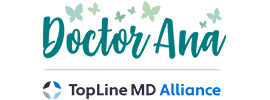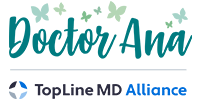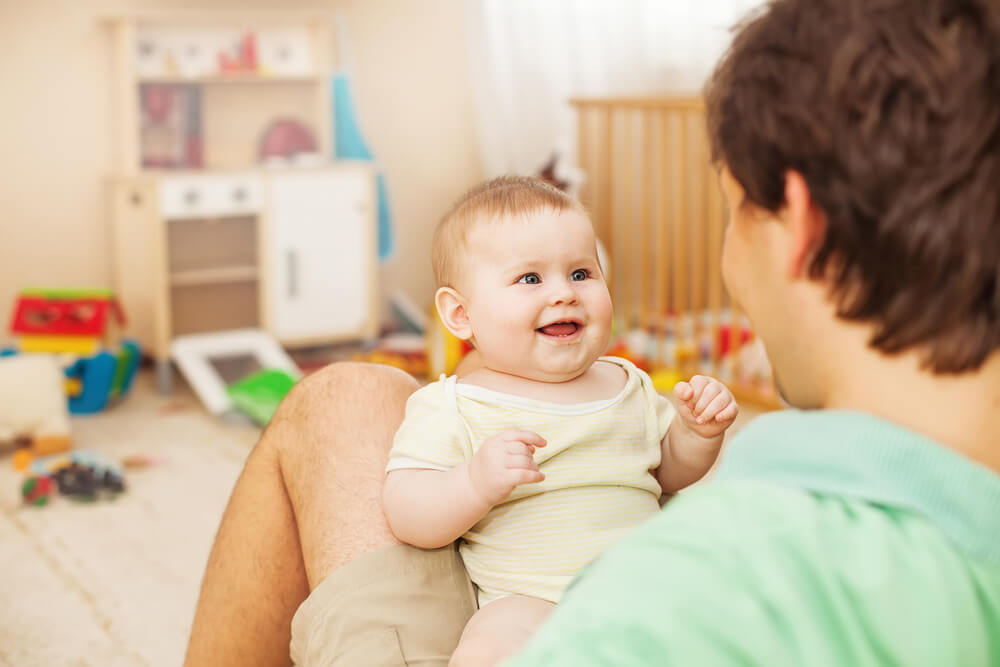When do babies start talking, and what are some of the must-know facts about speech milestones? Whether you are a new parent or a seasoned one looking for quick tips on understanding your baby, this article is perfect for you.
Below, you will learn about speech milestones according to age, the factors that can affect the baby’s talking, and much more.
Although these are expert-approved facts, it is always best to consult a pediatric care specialist first. Make sure to talk to a trained professional at a reliable clinic, especially if you have concerns and other health-related questions concerning your child.
With that in mind, when do babies start talking? What are some fool-proof ways to help your child with speech? Find out below.
When Do Babies Start Talking?
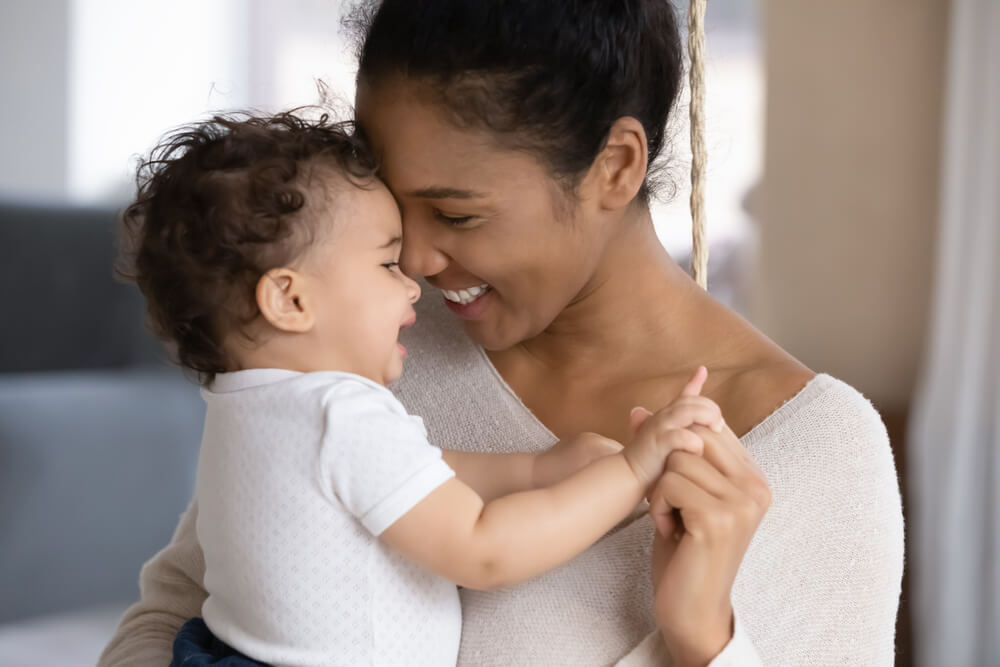
You may hear the baby’s first words at an age that is earlier than predicted, or your baby may also be a “late bloomer.” In general, when should you expect your child to talk? Here are some general guidelines on what to expect.
Typically, most babies utter their first word between the ages of 12 to 18 months. However, some parents may begin to hear the initial verbal communication stages after childbirth. According to the experts, babies make different sounds from birth up to three months. For instance, many parents may notice their baby cooing and smiling. Once the child reaches six months, parents may also hear babbling similar to speech. Some babies may make a “buh,” “mi,” or “puh” sound. All of this is entirely normal, and we can also say that these are the baby’s first words.
As the child grows, parents may expect the following speech milestones:
- Up to three months: Babies make cooing sounds.
- Between four and six months: Babies giggle and laugh. You can expect other playful sounds.
- By 12 months: You may hear long strings of sounds such as da-da-da-da or ba-ba-ba-ba.
- Up to 18 months: Parents may hear the baby’s first words, such as “mama” or “dada.” These will be single words and names of familiar objects or people.
Some parents may hear the first words at an age that fits the guidelines above, while others may listen to them earlier or later. In most cases, delayed talking is no reason for concern. However, sometimes it may point to other underlying issues. Find out more about these complications later in this article.
According to the experts, usually, babies experiment with various sounds before reaching the one-year mark.
The Speech Development Chart
Your baby is one year old. When should your baby be talking? Experts claim that after the age of one, parents should pay close attention to yearly speech milestones. These include:
- Between 12 to 18 months: The baby should utter single words such as “dada,” “mama,” “cat,” etc.
- By the age of two: The child should utter two-word phrases like “mommy come” or “dog eat.”
- By the age of three: The child should have a word for nearly everything and should utter three-word phrases.
Typically, each year after the age of three, children should create longer and more complex sentences.
If you are reading this and your baby’s first words and age do not match, worry not- every child is unique. We always recommend talking to an expert for custom-tailored advice and guidance. If you are looking for the best professional in the area, we sincerely recommend Doctor Ana.
That said, instead of putting the focus on a specific word count for the child’s age, you can also check whether his or her vocabulary is growing. Another way to check the child’s speech development is to notice whether they are learning new words every week. If you witness continuous development, that indicates that the child’s speech is progressing.
My Baby Isn’t Talking: What are the Reasons?
As mentioned, your child may be a late bloomer, and you may need to be patient with speech development. Eventually, you will hear the baby’s first words. However, in some cases, the language development delay may happen due to underlying medical diagnoses and issues, like:
- Down syndrome
- Hearing impairment
- Cerebral palsy
- Autism Spectrum Disorder
Another common factor why your baby isn’t talking includes the specific environment. For instance, if the baby is not brought up in an environment where people interact with them, they may become delayed talkers.
The Covid-19 pandemic may also be one of the reasons why many children struggle with language development and speech. Namely, in the initial months of life, babies must see the face and mouths of caregivers, parents, and siblings. By looking at facial expressions, they learn and imitate. According to the experts, toddlers and babies struggling with speech problems require visual cues. Since the Covid-19 pandemic requires the use of masks, children may find language learning more challenging.
Social isolation is another way the coronavirus pandemic impacted the speech development of children. Babies and toddlers brought up in the age of coronavirus are at risk of not getting sufficient time with others at daycare, preschool, or playdates.
An excellent way to encourage language learning and speech development during the covid-19 pandemic is to spend plenty of time interacting with babies and toddlers at home without the use of masks. Allow your child to see your face and learn facial expressions. Moreover, make plans for your child to interact safely with other children.
Helping with the Baby’s First Words: When to Help?
Talk to your healthcare provider if your baby displays some or all of the following:
- By 15 months, the baby doesn’t attempt to communicate or doesn’t show interest in communicating (for example, gesturing).
- By 18 months, the baby doesn’t follow simple instructions such as “get the toy.”
- By 18 months, the baby doesn’t imitate different sounds.
- The baby doesn’t identify objects and people around them.
Your child may require professional help if they:
- Have a good vocabulary, but they do not understand the words by the age of three.
- Experience a sudden loss of language skills and speech.
If you are worried about your baby’s speech development, book an appointment with a pediatrician or a primary care doctor. If required, you will be referred to a speech-language therapist for further evaluation. In some cases, children just require a “push.” By seeking out professional help early, better and quicker results are guaranteed.
How Can I Teach Baby’s First Words?
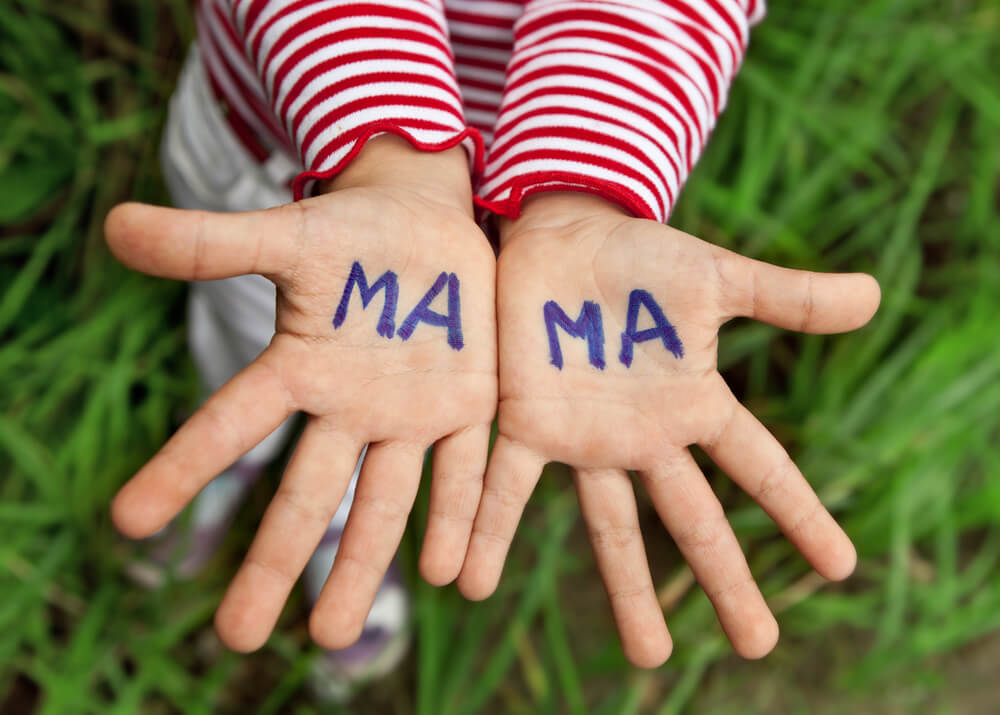
There are many ways you can teach your baby to talk. Consider some of the following tips:
- When the baby coos, say “Are you sleepy?”, “Are you happy?”. Engage with your child.
- When the baby smiles, mirror them by smiling back.
- Narrate what you and the baby are doing as you are doing it. For example, say, “Mommy is changing your diaper.”
- Read a book to the baby and point to pictures. Talk about objects and colors.
- Sing nursery rhymes and songs.
- Play with pans, toys, and balls.
Remember to always engage with your baby and give them your attention frequently.
Using Apps and Toys for Speech Development
You can also teach your baby to talk by using different apps and toys that show “cause and effect.” These apps and games develop the baby’s cognitive skills required for speech development.
For instance, good “cause and effect” games include:
- Winding up a box and a toy pops out.
- Putting a coin in a box and it begins to play music.
- Putting a ball into a hole and watching it go down the slide.
Overall, be patient with your child and help them improve their language skills gradually.
If you need professional assistance, we are here to help. Book an appointment with us today to receive an expert diagnosis and treatment.

